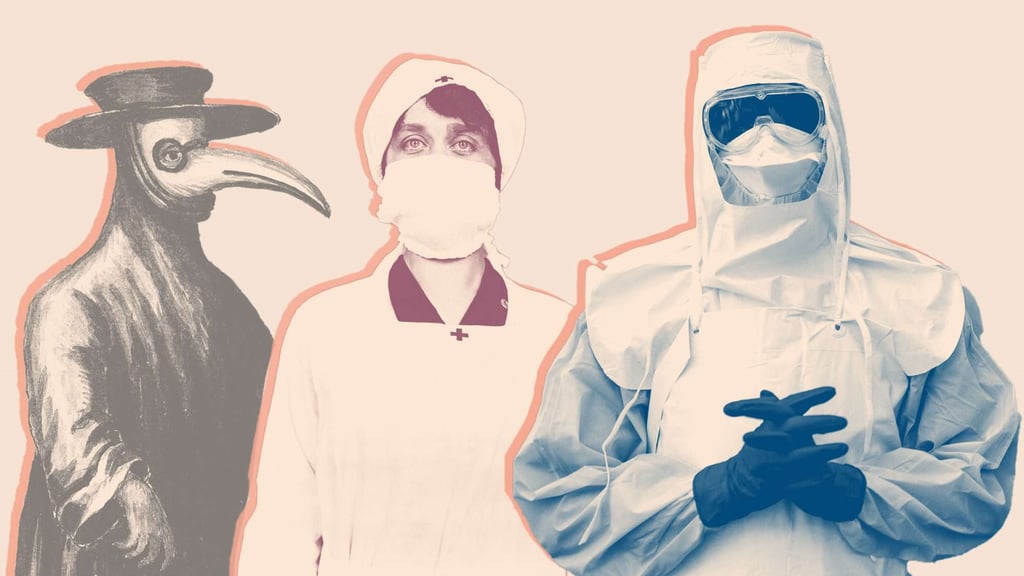COVID-19 vs. History: Comparing the Deadliest Pandemics
Explore how the COVID-19 pandemic stacks up against historical pandemics like the Black Death, Spanish Flu, and others, revealing surprising insights and stark contrasts.
7/14/20243 min read


COVID-19 vs. History: Comparing Death Toll of Global Pandemics
As I was reading about the great plague the other day, a thought crossed my mind—how did COVID-19 stack up against historical pandemics? After vaccines rolled out, life returned to normal, and we stopped hearing about the death tolls. My curiosity got the better of me, and I decided to dive into the numbers. Let's explore how COVID-19 compares to other pandemics in history.
The COVID-19 Pandemic
COVID-19 was first detected in Wuhan, China, in late 2019, reaching Australian shores on January 25, 2020. According to the World Health Organization, as of June 2024, the worldwide death toll from COVID-19 stands at 7,051,323, increasing by about 300 deaths per week. The United States reported the highest number of deaths at 1.2 million, followed by Brazil with 702,000, India with 534,000, Russia with 403,000, and Mexico with 335,000.
However, these numbers only tell part of the story. Reporting accuracy varied by country, with some governments potentially underreporting figures. For example, India's vast rural areas likely led to underreporting, with many deaths occurring outside hospital settings. Similarly, countries like North Korea and Turkmenistan reported no deaths, a claim met with skepticism.
The Black Death
The Black Death, a bubonic plague outbreak from 1334 to 1353, killed an estimated 75 million people worldwide, decimating about half of Europe's population. Unlike COVID-19, the Black Death occurred in a much smaller global population, making its impact even more severe percentage-wise. With no modern medicine, people relied on quarantine and isolation, waiting out the ten-year pandemic.
The Spanish Flu
The 1918 flu pandemic, or the "Spanish Flu," killed between 25-50 million people. It began in Kansas, USA, and spread to Europe amid World War I, exacerbated by wartime conditions. Despite its name, it didn't originate in Spain; neutral Spain's unrestricted press reported on it extensively, creating the misconception. With no vaccines, the pandemic ended as those infected either died or developed immunity by the summer of 1919.
New World Smallpox
When Europeans brought smallpox to the Americas, it caused catastrophic losses, killing 25-56 million people between 1520 and the early 1600s. Indigenous populations, with no immunity, suffered devastating death tolls. The smallpox vaccine, developed by Edward Jenner in 1796, eventually led to its eradication in 1980, marking a significant public health achievement.
The Plague of Justinian
This early version of the bubonic plague struck between 541-549 AD, killing 30-50 million people across continents. Limited historical records make it difficult to detail, but its massive death toll highlights its severity in a smaller global population.
HIV/AIDS Pandemic
The HIV/AIDS pandemic, which began around 1920, has killed approximately 45 million people worldwide. Though not often seen as a pandemic, it fits the definition due to its global spread. Modern treatments allow those with HIV to live long, healthy lives, and preventive measures have significantly reduced transmission rates.
Watch the full video
Conclusion
While COVID-19 was a significant global event, it was not the worst pandemic in history. The world handled it remarkably well, given the circumstances, thanks to modern medicine and coordinated efforts. The trauma faced by healthcare workers and the broader implications of our response will take time to process. As we reflect on these pandemics, we see the resilience of humanity in the face of biological challenges.
If you found this topic interesting, consider subscribing to our channel for more death and dying-related content every Friday.
Ready to dive deeper into these crucial conversations?
Book a personalised 1-hour consultation today and gain valuable insights tailored to your specific concerns.





